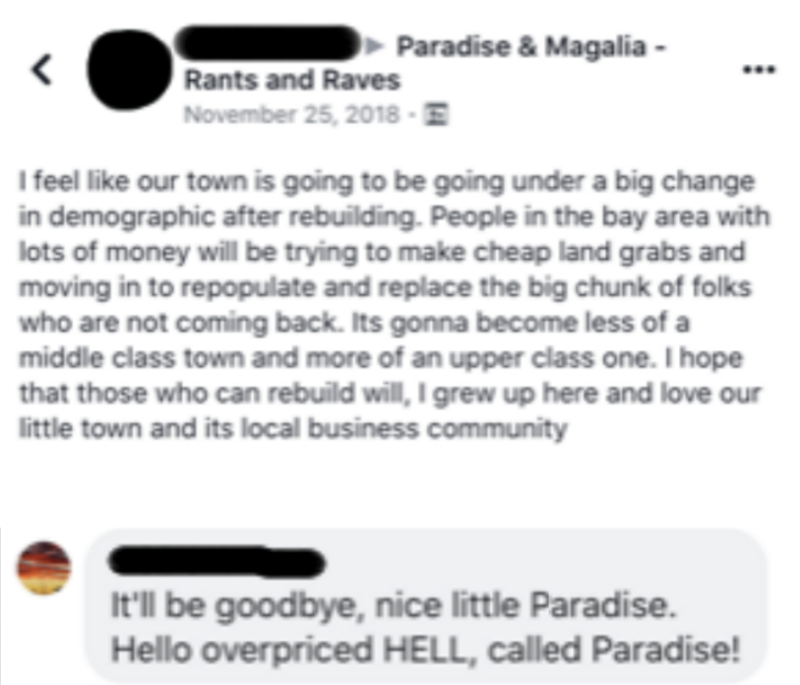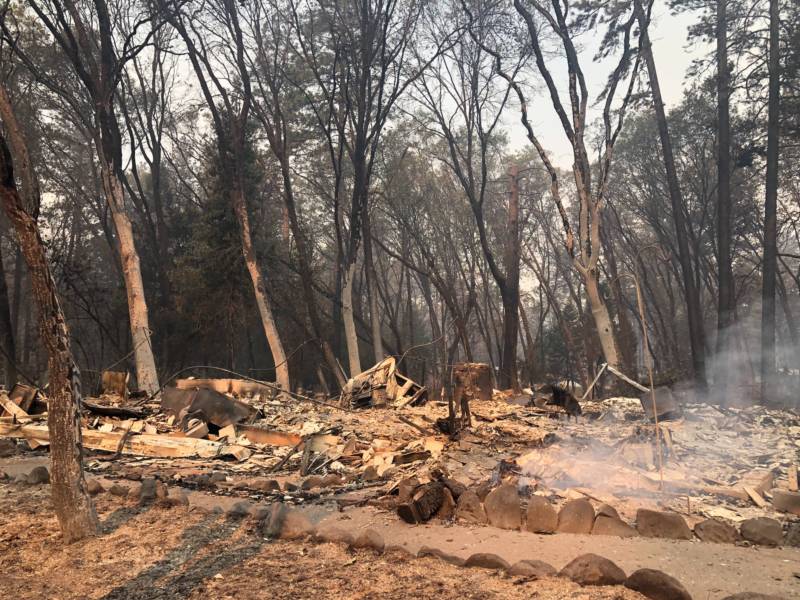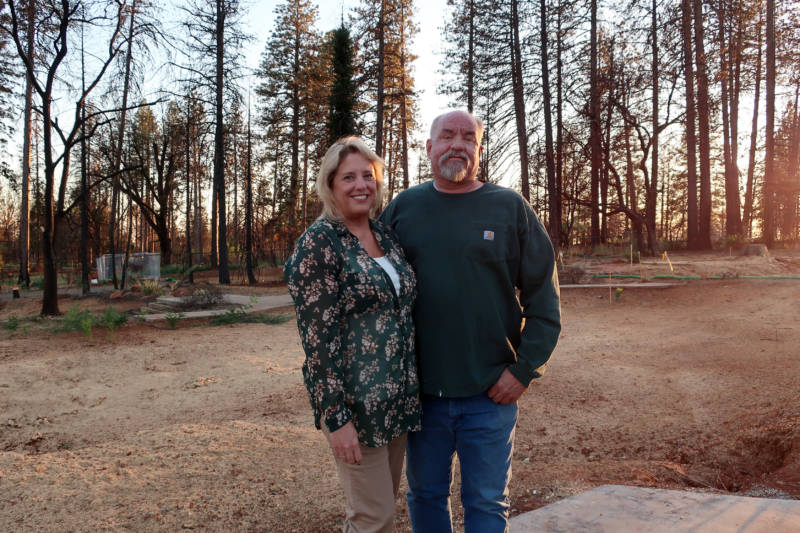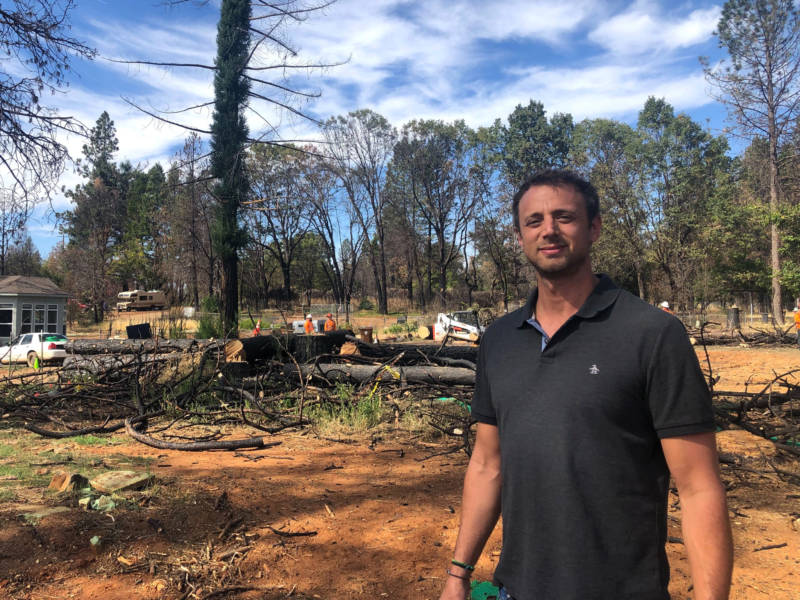On a secluded corner of Marywood Drive in Paradise sit two vacant lots, side by side. The empty space used to hold single-family residences surrounded by Ponderosa pines. That was until the November 2018 Camp Fire — California’s deadliest and most destructive wildfire — leveled the Butte County town and destroyed more than 13,000 homes.
Now, one year later, these lots are being rebuilt by two Paradise natives, Christine and Dave Williams, who bought the properties after the fire.
The pair didn’t lose their own home but are deeply invested in the future of their town, and see these purchases as part of that investment. So far, Dave and Christine have been focused on cleaning the lot by removing dead trees and debris. But they’re planning to build two traditional, single-family homes, reminiscent of what used to be there before the fire, and are already looking at floor plans.

“I just want it the way it used to be,” said Christine Williams. “It’s a beautiful town, a beautiful place to live, a great place to raise families. And we just want to encourage people to come back.”
In the days and weeks after the Camp Fire struck, there were concerns among residents that their town would be bought up by big developers who would rebuild a Paradise not meant for the people who lived there.
But according to a KQED analysis of data from Butte County, including property sales and building permits from the day the fire hit through September 2019, big developers didn’t move in — locals did.
The analysis found that 71% of people who purchased parcels in the town of Paradise had a Butte County mailing address. The majority of purchases were very local: 38% of buyers have an address in Paradise and 25% in nearby Chico.
That’s not how post-wildfire rebuilding typically plays out. Often, large development companies invest in these areas and purchase multiple properties.
Paradise vs. Santa Rosa
After the 2017 Tubbs Fire — which burned about 36,807 acres and destroyed 5,636 structures — out-of-town developers purchased large quantities of real estate in Santa Rosa and the surrounding burn areas.
“We’ve seen a big emphasis from builders in the greater Bay Area, and some of those are bigger production homebuilders,” said Doug Solwick, a real estate broker in Santa Rosa. “We’ve seen smaller builders that have people from as far away as L.A. and other states, from as far away as Utah.”
Rebuilding after a fire can be prohibitively expensive and time-consuming — something that survivors of a fire might not be up for.
“We started talking with [Santa Rosa] homeowners, and we realized that 40% of the people don’t actually rebuild — they just choose to sell,” said developer Greg Owen, whose Fairfield-based company Silvermark Luxury Homes purchased around 100 properties in Santa Rosa neighborhoods burned by the Tubbs Fire.
He said his company considered purchasing property in Paradise after the fire, but those infrastructure issues dissuaded him.

“We went up and surveyed it after the fire, and then about three months later, and realized it was unlike Santa Rosa,” explained Owen. “The infrastructure wasn’t there. The hospitals were gone, most of the homes were on septic systems and they also had a problem getting water.”
And it’s not just infrastructure issues that complicate rebuilding. Due to the widespread destruction, Paradise has a lot of rebuilding to be done, and there are not enough construction workers to support it.
Before the Camp Fire, Assistant Town Manager Marc Mattox said Paradise would process 25-35 permits "on a good year." This year, from February through the end of September, Paradise approved 962 permits, according to data obtained from Paradise officials.

